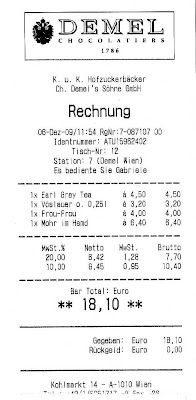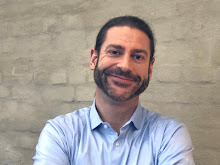Ethics in Management Consulting
(Ethik in der Unternehmensberatung)
Two and a half years of studying, travelling and learning next to the regular work life have finally come to an end: The finalisation of the colloquium marked the successful conclusion of my post-graduate MBA studies in International Management Consulting.
Having graduated “with distinction”, I can now look back on intensive weekend seminars, inspiring lecture styles and contents, fruitful peer discussions across cultures, demanding studying periods and thorough research periods – and I can say that is was truly worth it and highly enriching experience.
Of particular and hopefully long-lasting interest is my masters dissertation, which was graded by the university with a 1.0: Ethics in Management Consulting (Ethik in der Unternehmensberatung). This is the first academic research undertaken in the field, following the theoretical concept of Integrative Consulting Ethics by Ulrich Hagenmeyer.
I have recently published the title with the following details:
Ethics in Management Consulting (Ethik in der Unternehmensberatung)
An examination of the extent to which the principles of integrative consulting ethics are incorporated in management consulting firms in Germany
GRIN-Verlag, München/Ravensburg, 2009
ISBN 978-3640421848
Price: 34,90 EUR (pdf download)
http://www.grin.com/e-book/135704/

For those interested and as an overview of the work done, here is the abstract of the title:
___________________________________________________
Ethics in Management Consulting
An examination of the extent to which the principles of integrative consulting ethics are incorporated in management consulting firms in Germany
ABSTRACT
In the current financial and economic crisis, public concern of a value-based economic system grows. The demand by politicians, economists and the society for ethical behaviour in the market increases and thus questions the prevailing system of worldwide managerial capitalism. Especially in Germany, the rising awareness for bad business practices calls for a change in values. This development not only affects the providers of products and services, but also has significant impacts on their advisors on strategic and operational levels: the industry of management consulting.
Against this background, the present masters dissertation examines the extent to which the principles of integrative consulting ethics are incorporated in management consulting firms in Germany. To this end, the determinants of awareness, institutionalisation, application and enforcement of ethics integration in organisations are assessed. This work represents the first academic approach to research the practical application of thoroughly reflected ethical guidelines and standards in the industry. After a general introduction into the topic, the theoretical framework research provides the background of the work done in the field of ethics in management consulting, namely integrative consulting ethics.
The empirical part employs a multi-method approach: firstly, a quantitative survey was carried out via the BDU and produced a total of 194 responses, thus providing a statistical relevance for the results; and secondly, qualitative interviews were led with four representatives of large management consulting firms in Germany, suggesting a series of conclusive deductions.
The drawn up conclusions show that the level of incorporating the principles of integrative consulting ethics in management consulting firms in Germany is generally low. Awareness for the topic is superficial, leading to deficient institutionalisation; furthermore, application is suggested to be very weak and enforcement appears to be practically non-existent. Finally, the outlook and the recommendations act as a reference to improve the current status quo of the industry in the light of a rising importance of value-oriented activity in the economic system. 
___________________________________________________
While the full content of the masters dissertation is specifically aimed at a target audience of industry professionals and academics, an article concentrating on the key findings is about to come out in the German consulting magazine Zeitschrift der Unternehmensberatung ZUb.
Upon publication, a respective reference will be made in this weblog – so be sure to check back.
Andreas Hauser MBA

















































